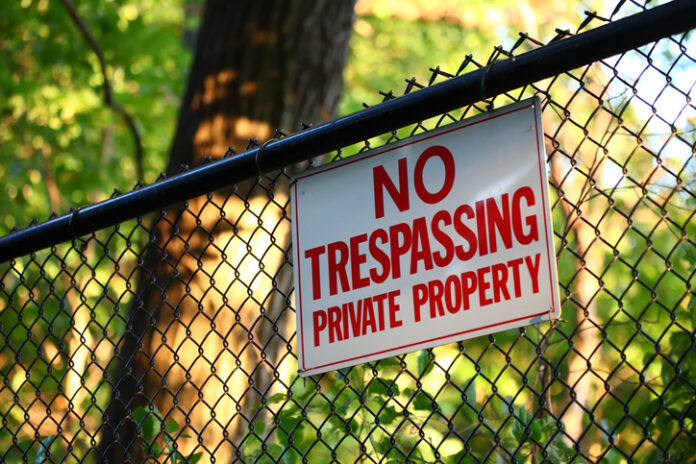‘Open fields’ doctrine allows warrantless searches of private land, where there is no “reasonable expectations of privacy.” (Commentary)
By Joshua Windham
Terry Rainwaters was at home on his 136-acre farm in Camden, Tennessee, when his son walked in, distressed. “Dad, there are cameras in our trees.” Two cameras, to be exact: one pointed at Terry’s crops, the other pointed at the back of a tenant’s house. This unsettling discovery came just a few weeks after seeing a game warden sneak onto his land in a ghillie suit, and after years of game wardens prowling around farms in Terry’s neighborhood without consent or a warrant.
Americans instinctively recoil at warrantless surveillance. Terry was no exception—he filed a lawsuit with the help of my public-interest law firm, the Institute for Justice. But for the game wardens who invaded his land, put cameras in his trees and never even bothered to get his consent or a warrant, these intrusions were second nature. You might be wondering: Isn’t this why we have the Fourth Amendment? That was my first reaction, too.
But then I learned about something called the “open fields doctrine.” Exactly a century ago, the Supreme Court held that open fields—the vast majority of private land in America—deserve zero protection from warrantless searches. As a result, government officials at every level can enter our land, roam around as they please and spy on us without any meaningful oversight. Because those are precisely the kinds of abusive searches the Fourth Amendment was adopted to forbid, it’s high time courts and lawmakers rethink the open fields doctrine.
The Problem
That hole stems from two Supreme Court cases involving drugs. In Hester v. United States (1924), officers entered a fenced farm without a warrant to look for moonshine. In Oliver v. United States (1984), officers entered fenced farms posted with “no trespassing” signs to look for marijuana. Hester held that nothing in the Fourth Amendment’s text protects “open fields.” Oliver held that even though the amendment also protects “reasonable expectations of privacy” not listed in the text, it’s never reasonable to expect privacy on “open fields.”
Despite the name, “open fields” are not merely the fields a person has left open to the public. In fact, the concept isn’t limited to fields at all. Instead, it refers to all land we own—including land that is fenced or posted with “no trespassing” signs—except the area right around the home, called the “curtilage.” To put a number on it, the Institute for Justice recently published a study that found about 96% of all private land in America—nearly 1.2 billion acres—qualifies as open fields and thus falls outside the scope of Fourth Amendment protection.
The Mistakes
The Solution
That’s the point of Terry Rainwaters’ lawsuit. In 2020, he sued the Tennessee Wildlife Resources Agency under Article I, Section 7 of the Tennessee Constitution, which forbids “unreasonable searches” of “possessions”—a term that is not listed in the Fourth Amendment but that plainly covers private land. And in 2022, a Tennessee court agreed, declaring game wardens’ warrantless searches of Terry’s farm “unconstitutional and unlawful.”
Nor is Tennessee alone. So far, courts in six other states—Mississippi, Montana, New York, Oregon, Vermont and Washington—have rejected the open fields doctrine under their own state constitutions. Lawsuits pending in Louisiana, Pennsylvania and Virginia could increase that number. And, of course, states are free to pass legislation—like the Institute for Justice’s model legislation, the Protecting Real Property From Warrantless Searches Act—requiring their officials to get a warrant before searching private land.
But state solutions, because they are limited to state officials, can only get us so far. The best way to fully restore all Americans’ right to be secure on our land is a federal solution. Congress could do it with a statute. The better path, though—the path our founders intended—is for the Supreme Court to recognize that the Fourth Amendment forbids warrantless searches of private land. In other words, the Court should overrule the open fields doctrine. 100 years of government trespassing is enough.
Joshua Windham is an attorney and Elfie Gallun Fellow in Freedom and the Constitution at the Institute for Justice.
Originally published by the Mecatus Center. Republished with permission.
For more Rights, Justice, and Culture News.






